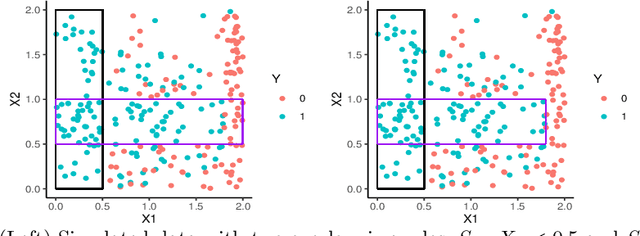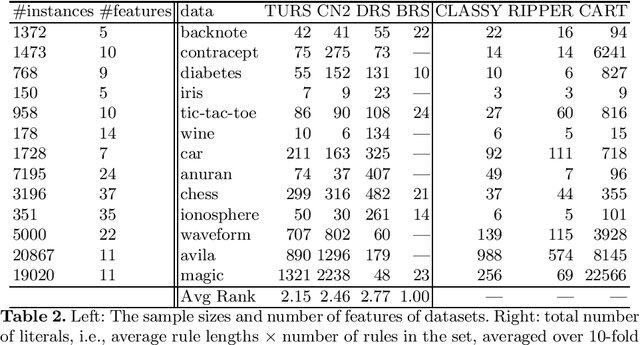Truly Unordered Probabilistic Rule Sets for Multi-class Classification
Paper and Code
Jun 29, 2022



Rule set learning has long been studied and has recently been frequently revisited due to the need for interpretable models. Still, existing methods have several shortcomings: 1) most recent methods require a binary feature matrix as input, learning rules directly from numeric variables is understudied; 2) existing methods impose orders among rules, either explicitly or implicitly, which harms interpretability; and 3) currently no method exists for learning probabilistic rule sets for multi-class target variables (there is only a method for probabilistic rule lists). We propose TURS, for Truly Unordered Rule Sets, which addresses these shortcomings. We first formalise the problem of learning truly unordered rule sets. To resolve conflicts caused by overlapping rules, i.e., instances covered by multiple rules, we propose a novel approach that exploits the probabilistic properties of our rule sets. We next develop a two-phase heuristic algorithm that learns rule sets by carefully growing rules. An important innovation is that we use a surrogate score to take the global potential of the rule set into account when learning a local rule. Finally, we empirically demonstrate that, compared to non-probabilistic and (explicitly or implicitly) ordered state-of-the-art methods, our method learns rule sets that not only have better interpretability (i.e., they are smaller and truly unordered), but also better predictive performance.
 Add to Chrome
Add to Chrome Add to Firefox
Add to Firefox Add to Edge
Add to Edge